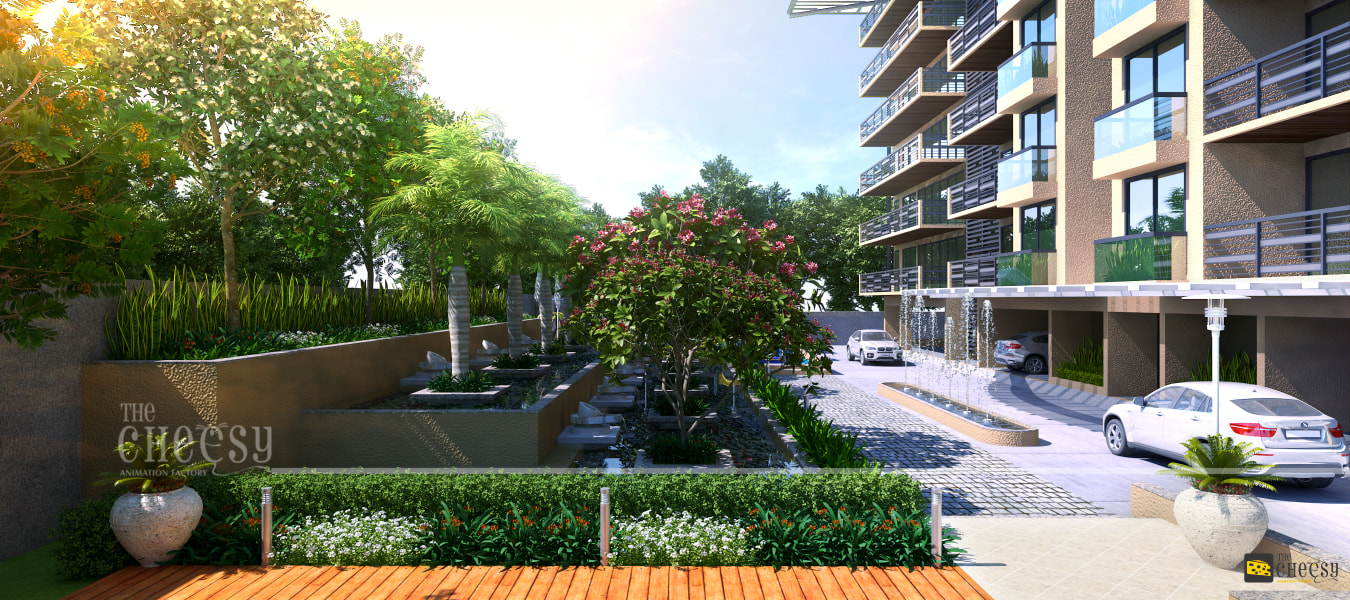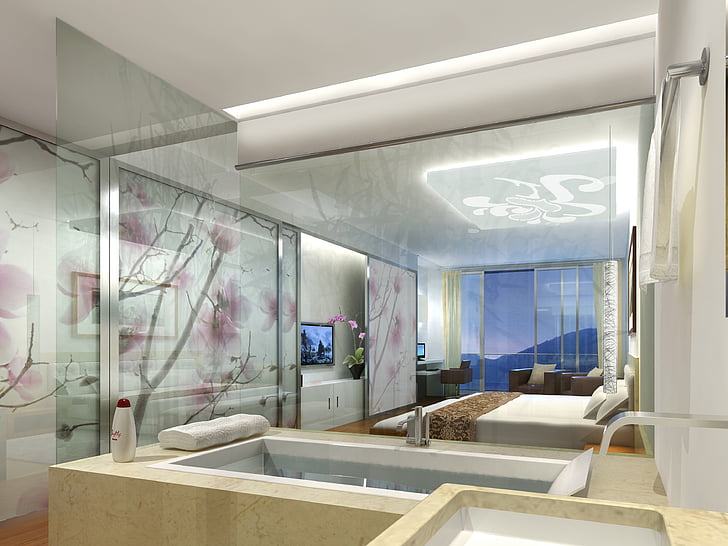Residential architecture, namely homebuilding projects undertaken by national homebuilders, benefits to a significant degree from residential architectural rendering.
Rendering involves creating a 3D image with colours and shading so that designers, contractors and potential customers have an accurate idea of how the completed project will appear. In addition to developing designs accurately, architectural 3D rendering can help identify any potential challenges early in the design process and showcase design ideas effectively with both partners and clients.
Homebuilders typically create single home images as well as street scenes or site images, so that prospective investors or buyers can see the proposed purchase within the context of the street that their house will be placed within. These screet-scapes or street scenes are typically used as part of the wider marketing material that is used by homebuilders.
Such material typically includes rendered 3D images, street scenes, home plans and rendered leaflets showing the render as well as floor plans for each house and site maps, which may show the phases of development for larger sites.
<script async website
(adsbygoogle = window.adsbygoogle || []).push({});
Using a 3D CAD model, a rendered image can be created and provide a realistic and detailed view of the home. There are 3 main types of 3D rendering: exterior, interior and aerial.
Each type of 3D CGI rendering can be presented in a certain rendering style.
Generally, all 3 types will be portrayed in the same style to maintain continuity and to provide accurate views.

Technological advances have ensured that the visualisation of homes has transformed from the hand-drawn 2D sketches of old to computer-generated images that are photo-realistic canvasses.
Moving beyond just representing interiors, exteriors and aerial views accurately as three-dimensional forms, rendering has enabled artists to add emotions, the feeling of airiness, luxury and can even show how people can utilise spaces. In addition to presenting the potential of the homes, every artist has his or her own individual interpretation of space functionality.
Factors that influence these interpretations can be:
- Creativity – Moulded by an artist's interests, pursuits, experiences, background and education.
- Unique Style – Every artist will have his or her own style.
- Critics – Artists will consider both positive and negative feedback to improve their designs.
- Surroundings – The environment of the building, the materials, soil type on site, neighbouring structures.
Some of the more popular 3D rendering styles try to incorporate mood and lifestyle preferences in their presentation. Technological advances have made it possible to use colour, lighting, framing, texture,and angles to help realistically compose attractive internal and external visuals of homes.
Some of the rendering styles that have developed as a result even borrow names and approaches from the world of cinema. The more popular styles include the following:
- Generally used for interiors, it uses warm tones and portrays natural light to create a relaxed, cosy ambience.
- Diffused lighting, bright backgrounds and airy spaces are features.
- Name taken from Her movie's Theodore character.
- Can add people and plants to make the spaces more lively, aesthetically attractive and functional.
- Good to showcase spacious living areas.
- Uses cold colour tones (dark blue, dark green), low saturation, high contrast, strong design features
- Highlights angular shapes and modern materials
- Cloudy, stormy skies, shadowy silhouettes, mysterious elements for dramatic effect
- Drawing inspiration from high-violence detective movies, it projects modern minimalism.
- Accentuates modern and sophisticated architectural design
- Highlights the most important feature in a room
- Uses natural lighting, shadowing and colours to seem like a photograph
- Includes features that realistically portray how the home would be after construction
- Difficult to accomplish, as aesthetics cannot disguise the actual features of the home
- 3D artists must visualise how light moves in daily life and recreate human perception
- Generally used to portray exteriors, it uses high colour saturation, over-lighting, many laughing, talking people in the background for a romantic and happy setting.
(Named after the actress who has acted in numerous romantic comedies with happy endings)
- Lifts the design to show lively people, integrated into happy surroundings
- Features people in fun activities
- Sketching and Watercolour Style
- Uses extreme stylised features, aesthetic colours, textures
- Different layers and styles are used to create a mood or emotion
- Not necessarily accurate architectural depiction of the space
- Named after Michel Gondry, it is an attractive home style used for modern design.
- Can seem as if it is a collage, with 3D object renders, photographs, drawings and other elements, combined for a unique interior view
- Each render is unique.
- Used for modern, luxury homes
These different styles require the right software tools to create effective renders.
Many modern software tools have extensive built-in features, textures and models to help create accurate renders. Some architectural 3D rendering software tools enable sketching and water-colouring styles with a range of colours and textures to open up rooms in an engaging manner.
Investors and potential customers can also experience a complete feel of the proposed property with the help of virtual reality (VR) software capabilities. With the right hardware, viewers can interact with both virtual interiors and virtual exteriors, incorporating a variety of materials, objects, lighting and sounds.
Designs can be studied thoroughly by designers and contractors before construction.
Homebuilding firms and real estate developers can effectively share residential designs with potential customers with the use of homebuilder 3D rendered images and VR and can even change or modify designs to customise homes, if required.
A real concern, though, is the availability of qualified technical personnel capable of rendering images with the required expertise on the range of available rendering software options.
For this reason, many firms hire offshore companies to provide architectural 3D rendering services with fast turnaround times and for accurate, cost-effective images.
Outsourcing these services require the consideration of certain factors. These include the following:
- The company must be experienced in residential rendering on a global scale, with exposure to different home types, materials, finishes and layouts.
- The company executives must understand how brickwork is formed and how roof tiles are laid to accurately create images of these elements.
- Previous rendering work can be examined to determine the firm's understanding of lighting and shadow placement.
- The relevant software tools must be used.
- A pilot project can be arranged to determine the accuracy of their rendering output.
- The outsourced firm should preferably have a similar financial model and a similar cultural fit, ensuring that the communication is smooth.
With the right offshore partner to deliver accurate architectural 3D rendering services in the style that is required or preferred, the 3D visualisation process becomes easier, faster and more cost-effective.


